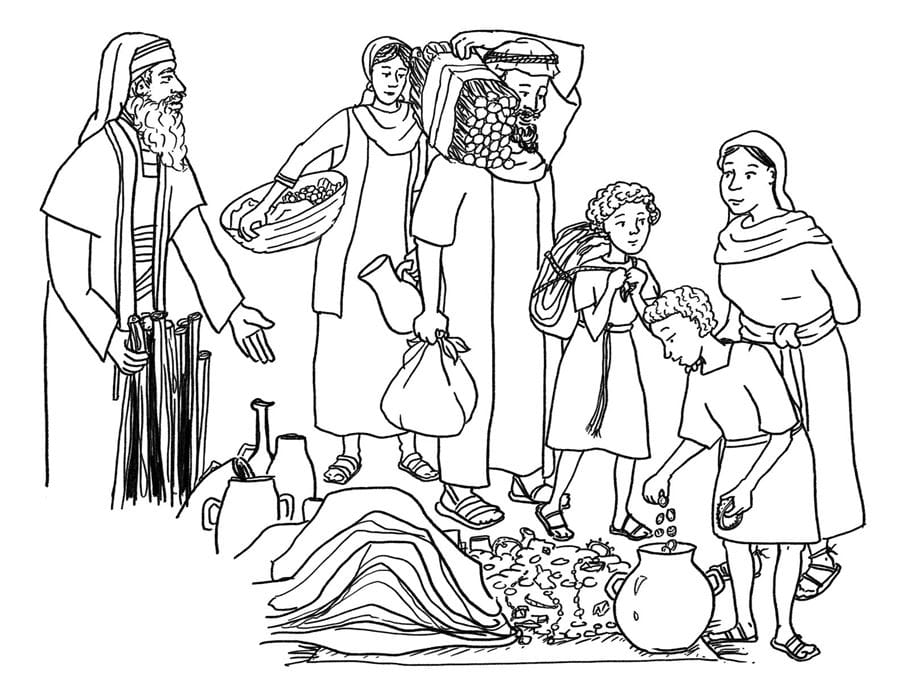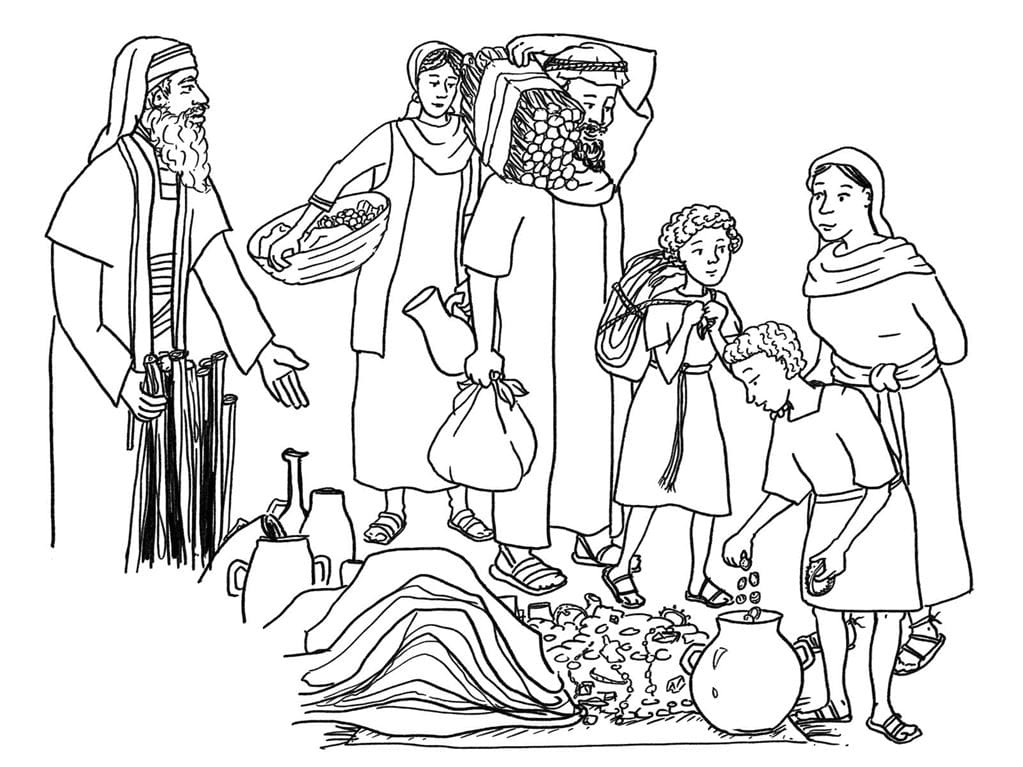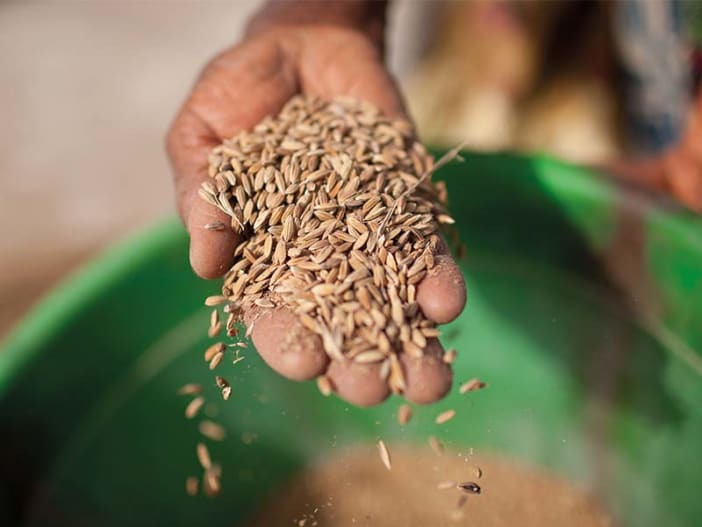God emphasised that the gifts were to be given willingly by people whose hearts prompted them to give (Exodus 25:2). He did not want anyone to be forced to contribute.
Stop!
After Moses told the people what God had said, the Israelites started to give in abundance: ‘And the people continued to bring freewill offerings morning after morning’ (Exodus 36:3). Eventually, the builders had to ask Moses to tell the people to stop giving! They had too much! ‘And so the people were restrained from bringing more, because what they already had was more than enough to do all the work’ (Exodus 36:6–7).
This is a beautiful illustration of joyful, abundant, generous giving to the Lord by his people.
Discussion questions
-
Why do you think God requested these offerings from the Israelites?
- What do you think caused them to give more than was expected for the project?
- Why does God expect us to bring offerings to him today? What do these offerings look like in your context?
- The Israelites freely gave expensive things such as gold, silver and bronze to God. Today, are we willing to give the best or most expensive things to God for his work?
- If we do not have expensive things to give, what other types of offerings can we bring to God?
From the heart
An offering is something we give to God for his work. What we give should come from the heart and be given willingly and cheerfully (2 Corinthians 9:7).
When our hearts are touched by God’s grace and we realise how much he has done for us, we want to give. Our giving becomes an act of worship and thanksgiving (1 Chronicles 16:29). Perhaps the Israelites gave so much and so willingly because they remembered how God had saved them from slavery in Egypt, and how he was providing for them in the desert.
Whenever we bring something to God, we should bring him the best we have. This is not dependent on how rich or poor we are (Luke 21:1–4). As well as money or other treasures, we can give our time and our talents.











